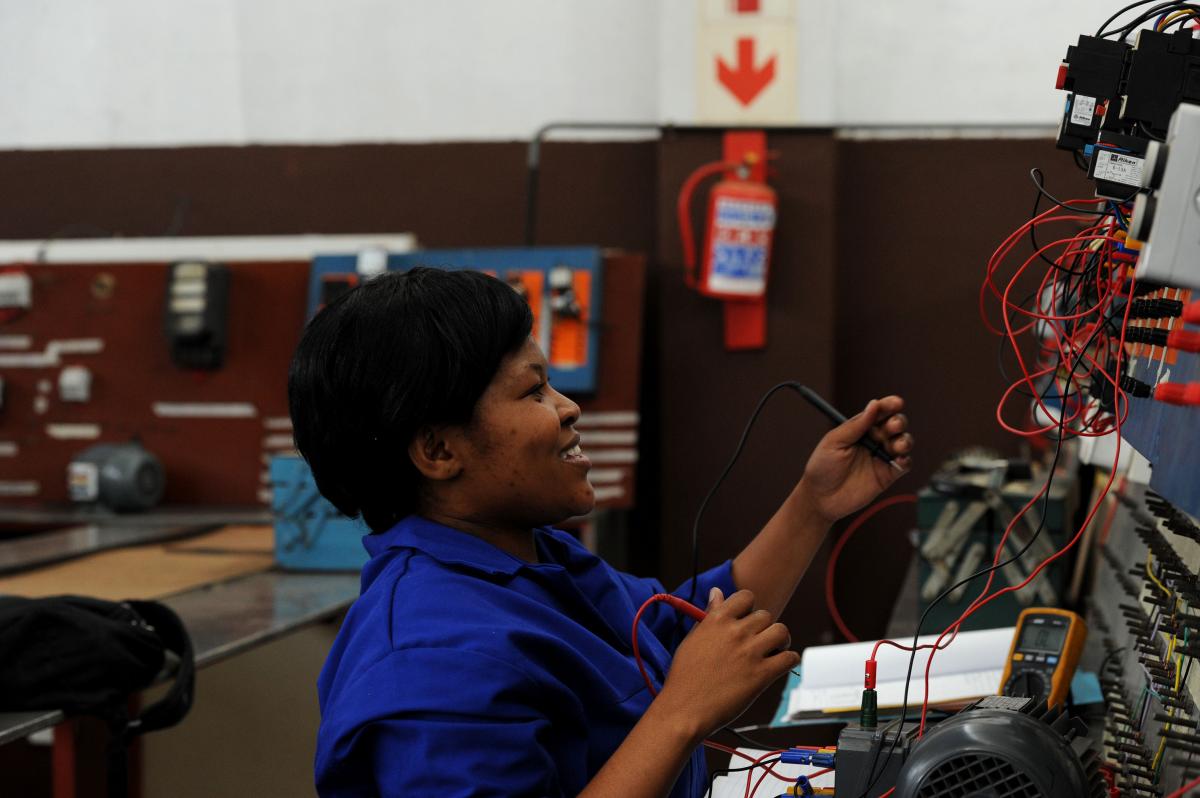Learners who finished matric in 2015 and were not able to get into universities need not spend a year without going to school.
Higher Education and Training Minister Blade Nzimande announced that there were approximately 517 402 opportunities available in the post-school system.
These opportunities, the Minister said, are found in the public universities and TVET colleges, as well as various workplace-related training opportunities supported through the 21 Sector Education and Training Authorities (SETAs), which help to promote and fund occupational/skills programmes linked to educational institutions and workplace.
The Minister said there were 212 472 new entrant opportunities at universities, 133 551 engineering and business studies opportunities at TVET colleges, 887 994 occupationally-directed opportunities in collaboration with TVET colleges, SETAs and employers.
The Minister also said there were about 30 750 new artisan learners to be registered, 51 835 learning programme opportunities in the form of 5 087 apprenticeships, 9 073 bursaries, 20 138 learnerships and 17 537 skills and work readiness programmes supported through the SETAs.
The Minister advised those who were not successful in completing their matric to consider rewriting their examinations or access all the sources of relevant information from his department to explore their options.
New universities
The Minister said the intake of students at the new universities has increased.
“This year, the enrolment will increase from 130 to 797 students at Sol Plaatjie University and from 140 to 940 at the University of Mpumalanga.
“The Sefako Makgatho Health and Science University will be entering its second year of operation with an intake of 1 300 students,” said the Minister.
He said South Africa recently established its ninth medical school – the first built in the democratic South Africa – and opened its doors for the first intake of 60 new students at the University of Limpopo last month.
“This is the second historically disadvantaged university to be involved in the training of our medical doctors and is linked, over the longer term, to the Presidential Project of building an academic hospital in Limpopo.”
The 26 public universities offer a diverse range of degrees, diplomas and higher certificates to prepare the matric class of 2015 to take their rightful place in the country’s economy.
The national average annual increase over the next five-year period in the number of first-time entering students at higher education institutions is targeted at 4.7 per cent, with first-time entering students making up approximately 25 per cent of the undergraduate student population.
“In 2016, our public universities will provide access to approximately 212 472 new entrants wishing to pursue their studies across all general, technical and professional fields including Business and Management, Science, Engineering, Agriculture and Technology, Humanities, Social Sciences, the Arts and Education.”
New colleges on the cards
Government is in the process of establishing 15 TVET colleges across the country.
Minister Nzimande announced that new TVET colleges would be built in Nkandla, KwaZulu-Natal; Graaff-Reinet; Ingwe in Ngqungushe; Ikhala in Sterkspruit and in Aliwal North in the Eastern Cape.
Others will be built in KwaZulu-Natalin Esayidi in Umzimkhulu, Umfolozi in Bhambanana and Nkandla A and B campuses in UMgungundlovu in Greytown, UMgungundlovu in Msinga, Mthashana in Kwa Gqikazi, Mthashana in Nongoma and Mthashana in Vryheid.
Colleges will also be built in Letaba in Giyani and Waterberg in Thabazimbi, while another college will be built in Mpumalanga in Balfour.
Students can also go to the student support services offices at any of the public TVET colleges for more information.



 Facebook
Facebook Twitter
Twitter WhatsApp
WhatsApp